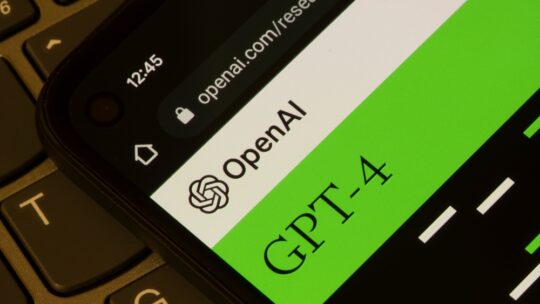
We’ve moved from the era of aggregation (think Google) to the era of synthesis (think ChatGPT). The shift is making legacy media a little grumpy. The New York Times, which did better than most newspapers in a world mediated by search and Facebook, isn’t keen on OpenAI treating almost two centuries of “All the News That’s Fit to Print” as a few gigabytes of training data. The Grey Lady is suing OpenAI for copyright infringement for an as-yet-undefined sum.
But don’t go thinking this is just another problem for sad, old media. This is way bigger. Communicators are also going to need to decide: Is there a danger in letting AI models train on their corporate content?
We’re All 'Ideas' Companies Now
In the previous two decades, everyone from consultancies to industrial giants like General Electric (before its recent restructuring) became content creators.
GE’s efforts began with the company’s flagship news site GE Reports. The content operation grew to include hundreds of white papers, content sites, collaborations with media companies, and at least one TV show, produced by Brian Grazer and Ron Howard.
GE wasn’t trying to get (back) into media; its communicators simply understood that content is how companies express themselves in the knowledge economy. Even for industrial companies, ideas are what they sell.
For a more on-the-nose example, consider McKinsey. The McKinsey Quarterly was an early, and masterful, example of brand journalism. Today, the Quarterly has, in spirit at least, swallowed the consultancy’s homepage, which is virtually indistinguishable from Harvard Business Review. Being a knowledge company means they’re a digital content company.
Should We Starve AI Models?
As the digital consultant and analyst Benedict Evans says, “Software ate the world, so all the world's problems get expressed in software.”
We should all be at least a little concerned that AI is going to eat the knowledge economy’s lunch by reading its recipes. Specially trained large language models are going to be able to incorporate and extract value from every idea that these companies have ever committed to content.
Sure, the AI will spit out a lot of mediocre PowerPoint decks–“humanize your executives!”–but we can also expect the occasional “Move 37” from the machines. The term originated with an AI model called AlphaGo, which made a move in a 2016 match of the 2,500-year-old strategy board game Go that “no human would have ever made.” And won.
AlphaGo put the knowledge economy on notice almost a decade ago: your content is training data for AI’s future innovations.
Finding A Balance in the AI World
So, should communicators act now to limit access to what they publish or gate it so machines can’t get at it? Right now, far from seeing AI as an adversary, PR professionals are rushing to embrace it as a productivity enhancer and marketing tool. Agencies and corporate communicators alike are looking to collaborate with AI companies.
The way forward, perhaps, requires some balance and a new mindset.
AI is increasingly acting as a digital gatekeeper, so tailoring the reputation for AI–what we call AI Optimization, or AIO–is going to be increasingly important. That could require making your digital presence, or select parts of it, more legible to the machines that are crawling everything from your website to your digital content.
But communicators must simultaneously ask some deeper questions about AI:
- What do LLMs say about your company or clients?
- Where are LLMs getting that information?
- If you were to imagine AI as a competitor unlike any other, is there any knowledge you wouldn’t want to give up?
Put another way: Some doors should be flung open to the new machine audience, while others will need to be guarded.
LLMs are going to pose significant questions about the control of information and raise the specter of information monopolies unrivaled by any recent tech. Perhaps, it’s time to have an internal discussion about gating your next white paper.
Matthew Van Dusen is co-founder of tech-enabled consultancy Literate AI.
